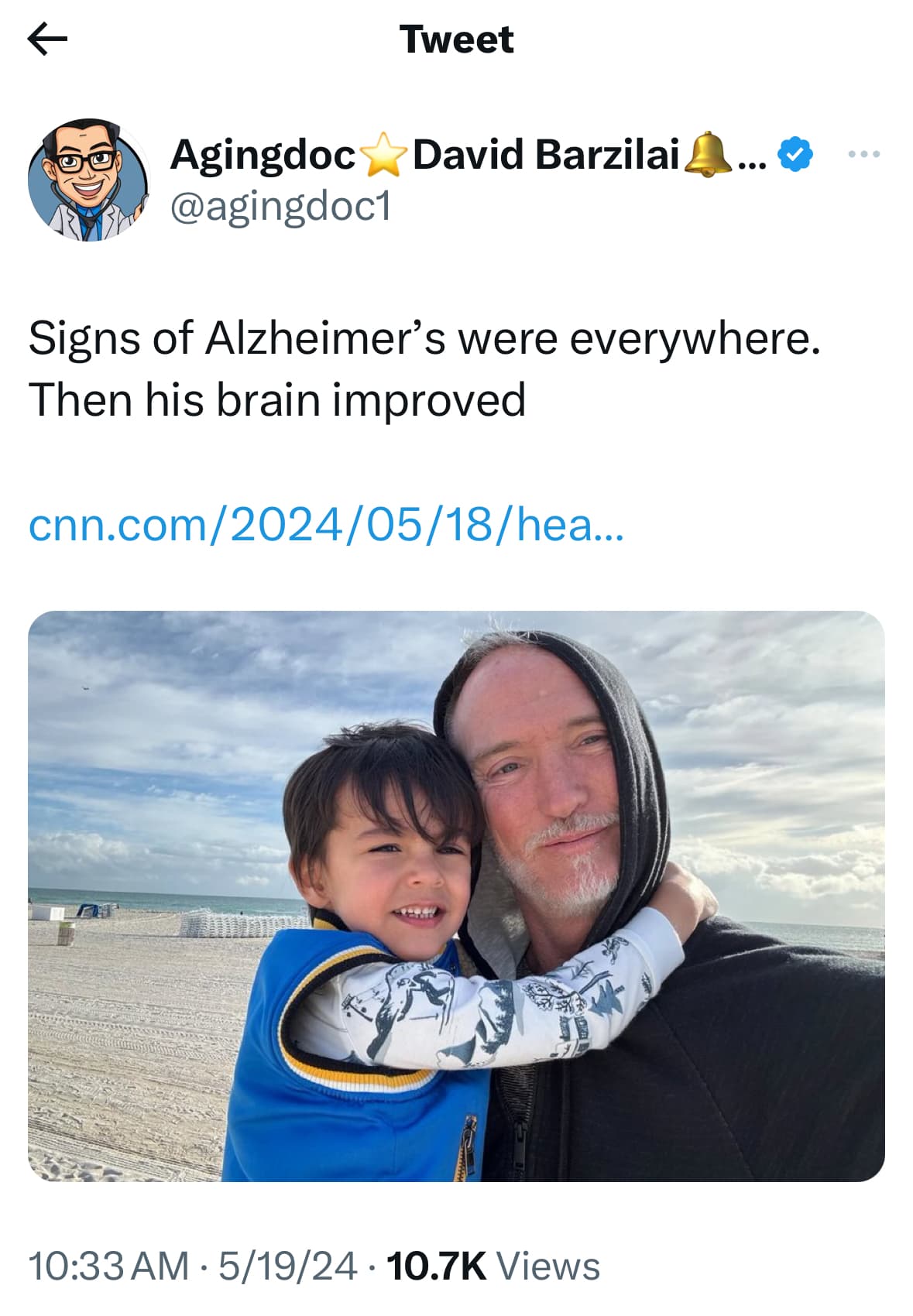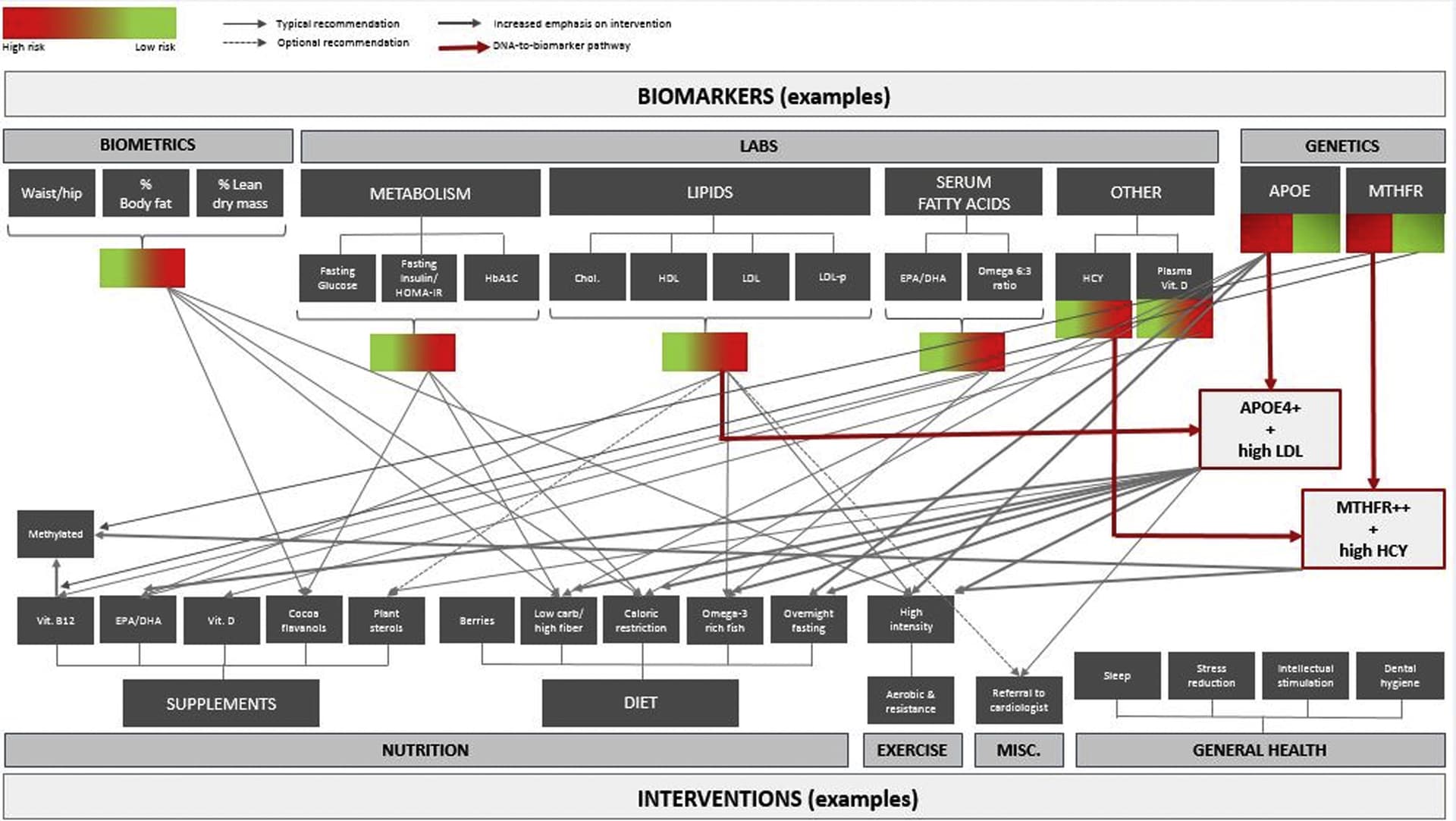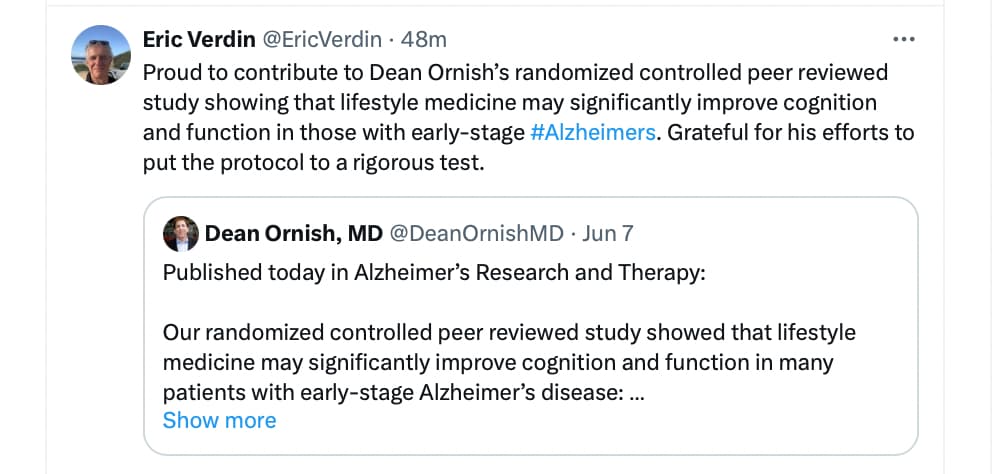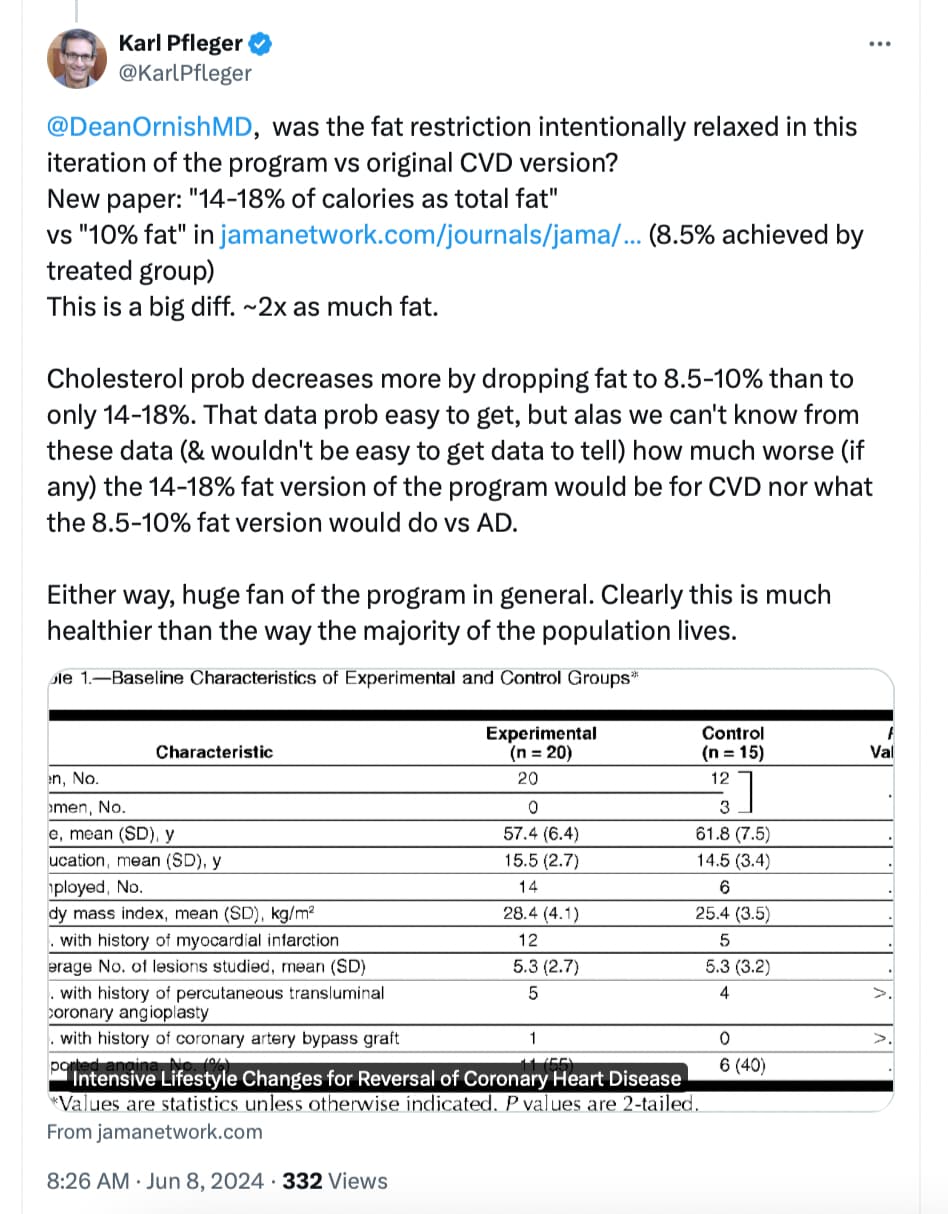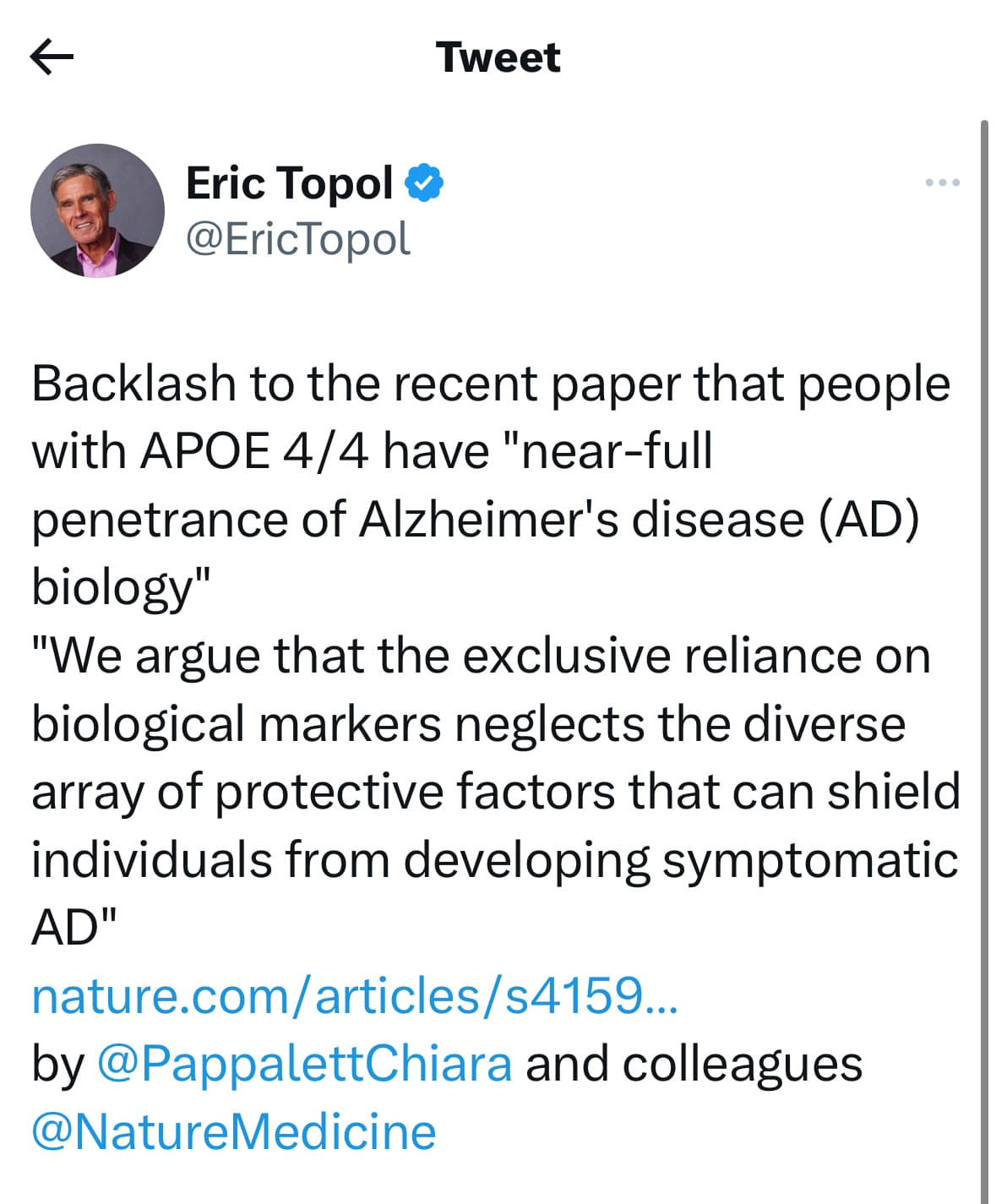And here is a follow up in the series. The whole documentary is out soon, so those who prefer TV version can also take a look at that.
Quite amazing how basically medically guided “biohacking” targeted at being proactive and triangulated with a lot of biomarkers can have this effect.
Will be very interesting to see the clinical trial data when complete.
Some snippets here I found interesting and relate to issues we have been discussing on the forum - including the value of doing the blood based biomarkers for AD and dementia risks:
As part of the trial, Nicholls underwent a battery of tests, including a unique blood test that can track levels of amyloid, tau and other hallmark biomarkers for Alzheimer’s disease and other degenerative conditions. Deposits of amyloid can begin accumulating in the brain decades before symptoms begin, even in a person’s 30s and 40s.
In August 2023, it was time to repeat the blood test for amyloid. By then, the company that administers the tests had added a measurement for tau, another key hallmark sign of Alzheimer’s, frontal lobe dementia and Lewy body disease.
Within six months, Nicholls had dropped the levels of amyloid in his blood from 70 to 53.
On Halloween 2023, the next APS2 score arrived. Amazingly, Nicholls had reduced the amount of amyloid and tau in his blood to 40: He was testing negative in blood for signs of Alzheimer’s.
Shocked and amazed, Isaacson remained skeptical. “I was very cautious. You know, promise not to overpromise. I needed to retest.”
A few days before Christmas, the repeat test results arrived. When it too was a negative finding of 40, Isaacson decided to tell Nicholls in person.
Even lower amyloid levels and a larger hippocampus
It appears Nicholls is well on his way toward that goal. In March, his APS2 score had dropped to 25, an unbelievably low number.
Even more startling: Brain volume scans showed that the hippocampus, the tiny seahorse-shaped organ responsible for memory, had actually grown in volume in Nicholls’ brain since he started the intervention.
In early Alzheimer’s stages, the hippocampus loses tissue rapidly and then atrophies as the disease progresses.
Despite these amazing outcomes, Isaacson remains cautious. After all, this is one person, and similar findings have not been been replicated in a larger, more controlled sample and published in a peer-reviewed journal.
That doesn’t stop his wonder at the results and his gratitude to Nicholls for his continuing dedication to the study and the personalized interventions.
“I still can’t believe it. I’d seen this before, but only in people who are taking anti-amyloid medications,” Isaacson said. “When you work your entire career and are told by everyone, ‘It’s not possible to do this,’ and then you see it — well, I’m still humbled and amazed.”
—
Elevated homocysteine, which is an amino acid used by the body to make protein, is a risk factor for brain atrophy, cognitive impairment and dementia. A September 2010 randomized controlled trial found that supplementation slowed brain atrophy in people with mild cognitive impairment.
—
Consider joining Isaacson’s latest online clinical trial, designed to provide cognitive assessments and personalized advice via smartphones. People over 21 who meet certain criteria can sign up for the study at Retain Your Brain.
